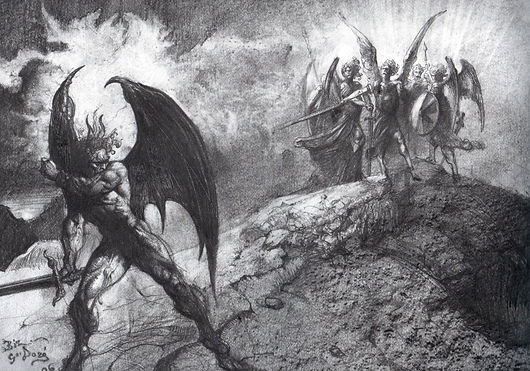The Big Boring Book Blog
READ ALL ABOUT IT
Paradise Lost
Paradise Lost, has been the subject of much debate in its relevance as an actual epic. Milton himself says that he intends to “justify the ways of God to men,” yet many believe that his Paradise Lost has a much greater allegorical context in relation to the current governmental state at the time. The problem with all of this is that it opens several windows for discussion: whether Paradise Lost is to be regarded as an epic due to lack of certain conventions and allegorical intentions, if Milton believed himself to be a prophet to speak on behalf of God, and therefore held any scriptural accuracy as an author, and if he simply intended to make a point about the side of government he felt was the most beneficial. These issues can be answered by understanding a few conventions; John Milton succeeded in writing an epic even though he left out certain elements, he was no more than a great poet in his day, and there existed intentions to draw parallels between the government and his epic poem. Either side on which these topics are chosen by scholars, Paradise Lost will always remain among the greatest, most influential, and most highly debated poems attempted by mankind.
Paradise Lost was narrated in such a unique way and provided a different view point on the story of Adam and Eve. I really enjoyed how John Milton wrote this epic in such an unconventional manner which forced me to read it in a different point of view, making it such an interesting piece
Common Theme
When relating the story of Adam and Eve, we become familiar with the act of disobedience that led to the fall of mankind. Adam yearns for knowledge which he believes he can gain by eating the forbidden fruit.
Quotes
“The mind is its own place, and in itself can make a heaven of hell, a hell of heaven..”
“Who overcomes
By force, hath overcome but half his foe.”
